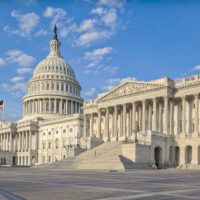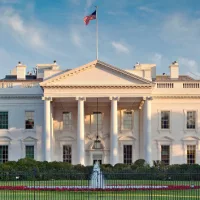
 drnadig/iStock(WASHINGTON) — When Supreme Court Justice Brett Kavanaugh was first nominated, an alarm was sounded that grew louder and louder over the four months leading up to the midterm elections.
drnadig/iStock(WASHINGTON) — When Supreme Court Justice Brett Kavanaugh was first nominated, an alarm was sounded that grew louder and louder over the four months leading up to the midterm elections.
The warnings came from abortion rights groups, who saw the longstanding Supreme Court ruling that ensures a woman’s right to an abortion at risk of being overturned, or, what some saw as worse, quietly gutted.
“There’s no way to sugarcoat it,” Dawn Laguens, the former executive vice president of Planned Parenthood who stepped down in November, said when Kavanaugh was nominated by the president in July. “The constitutional right to access safe, legal abortion in this country is on the line.”
And what abortion rights groups saw as a threat, anti-abortion groups saw as an opportunity — the best judicial climate in years.
“Indeed, this administration is not only shifting the Supreme Court, but the lower courts as well,” said former Rep. Marilyn Musgrave, R-Colorado, who currently works with the Susan B. Anthony List, a nationwide anti-abortion group that focuses on elections and policy, as the vice president of government affairs.
As Congress reconvenes for the 116th session, half-a-year after Kavanaugh’s nomination and two months after the 2018 midterms, the nation has seen political shake-ups across branches of government that are likely to bring changes to abortion legislation and, potentially, the look of Roe v. Wade.
“That is a very serious concern not just for Planned Parenthood, but for anyone in this country who cares about safe, legal access to abortion,” Dana Singiser, vice president for public policy and government affairs for the nationwide abortion rights organization, said in an interview with ABC News in December.
At the Supreme Court level, the next few years are expected to bring cases that will present the opportunity to overturn or gut abortion law, as it’s currently known, said Elizabeth Nash, who tracks legislation for the Guttmacher Institute, an abortion advocacy group.
“It is a very real threat that the court will be revisiting abortion rights in the next few years and that because of the makeup of the court, abortion rights are in jeopardy,” Nash said, referring to the addition of Trump’s nominees, Supreme Court Justices Neil Gorsuch and Kavanaugh.
Legal experts say the effects of the new justices on the court remain to be seen.
“Whether the confirmation of Kavanaugh to replace [Justice Anthony] Kennedy was the final nail in the coffin is something we’ll only actually be able to answer once the Supreme Court decides the matter,” said Stephen Vladeck, a professor at the University of Texas School of Law who follows abortion legislation.
That answer could come from any one of the 15 cases related to reproductive health currently working through the U.S. Courts of Appeals. The five cases closest to reaching the Supreme Court, according to Nash, are in Louisiana, Missouri, Alabama, Arkansas and Texas.
The court cases often begin in state legislatures in conservative states, said Nash, where restrictive abortion laws have frequently been approved as direct challenges to the Supreme Court’s 1973 ruling on Roe v. Wade.
Ohio State Rep. Christina Hagan, a Republican and sponsor of a bill in her own state that would ban abortions after six weeks, said in a separate interview there is indeed a consensus among conservative state lawmakers to take advantage of the moment.
“We are better seated than we’ve ever been to present our case for life to the courts, and every state legislature in the nation recognizes that,” Hagan said.
But it’s not about the number of restrictive abortion bills out of state legislatures intended to pose a challenge to Roe v. Wade, according to Vladeck, and he doesn’t predict a huge influx of such legislation, either.
“To me, it’s not the volume. It’s the substance,” Vladeck said.
“Once the courts have upheld a law in one state that prohibits abortions after you can detect a fetal heartbeat, other states will follow,” he said.
Hagan, the mother to 9-week-old twin boys and a three-year-old girl, had her children with her on the floor of the Ohio House of Representatives when her bill, also known as the “Heartbeat Bill,” passed in the state legislature in November.
Republican Ohio Gov. John Kasich vetoed the bill in December and said it was “contrary” to the Supreme Court’s decision on Roe v. Wade. Hagan said that was exactly the point. Newly-elected Gov. Mike DeWine, also a Republican, has said he would sign it if it’s revived.
Hagan, who is term-limited but whose co-sponsor on the bill continues to serve in the Ohio Statehouse, predicted it would be.
“I believe that the legislation we have developed in Ohio is going to be the arrow that goes into the heart of Roe v. Wade,” she said.
According to a preliminary analysis by Guttmacher Institute, there were 13 states that adopted 26 new restrictions on abortion and family planning in 2018.
“The way I envision it is the conservative states are kind of jockeying for position of who can pass the most extreme abortion ban first,” Nash said.
Yet the institute also found 2018 was the first year in which more legislation was adopted to protect abortion rights than to dismantle them, with 80 new measures enacted across 29 states and Washington. Additionally, some state policy trackers point to the six state legislatures that flipped to Democratic control in the midterms and said these states are gearing up to protect against abortion restrictions in the same way conservative states are looking to enact them.
“In the states where we saw dramatic shifts in power, we see a lot of opportunity for states to not just protect but expand in legislative sessions,” said Singiser of Planned Parenthood.
Still, the robust position Republicans hold in state legislatures across the country is one reason Singiser, like Nash, predicts dramatic change.
If Roe v. Wade were overturned, Singiser said, there are 20 states she predicted would quickly ban abortion or make it functionally inaccessible. For example, Louisiana, Mississippi, North Dakota and South Dakota all have laws to ban abortions that would immediately go into effect were the case overturned.
Still, beyond the courts and state legislatures, Singiser highlighted the new majority in the U.S. House of Representatives, where the Democrats will hold 235 seats to the Republicans’ 199, as a victory for abortion rights.
Oversight and investigation arms interested in holding the Trump-Pence administration accountable, now hold subpoena power, Singiser said. One such move already came from Rep. Elijah Cummings, D-Maryland, who is set to become the chairman on the House Committee on Oversight and Government Reform. In July, Cummings set his sights on a proposed rule from the Department of Health and Human Services that would affect women’s access to contraceptive care.
A record-breaking 102 women were also elected, Singiser pointed out.
“Particularly women, and women of color, made it clear they do not want elected officials controlling healthcare — particularly reproductive healthcare,” Singiser said.
The Pro-Choice Caucus in the House, co-chaired by Democratic Reps. Barbara Lee and Diana DeGette, also called attention to the new makeup of their chamber.
“In our historic new Democratic majority, with a record number of women and members of color, we are ready to hit the ground running to protect every woman’s constitutional right to reproductive health care,” Lee and DeGette said in a statement.
The new majority also puts Democrats in a position to block Republican efforts to deny Planned Parenthood federal funding, a longstanding threat when the GOP led the chamber.
In a separate interview, former Rep. Musgrave, too, viewed the change of control in the House as a significant shift for abortion legislation and said Washington will be a “different world” in the new year.
“This is a new day and quite frankly, the abortion lobby spent tens of millions of dollars flipping the House and they’re going to want a return on their money,” Musgrave said. “They’re going to expect Democrats to go after the pro-life legislation.”
But the Senate, which confirms judges to the federal courts, bolstered its Republican majority — and saw a net gain of two anti-abortion senators, according to Musgrave — putting more weight behind the president’s campaign promise to confirm more “pro-life judges” to the court.
“The good news is, we feel like the president and the pro-life Senate will stand for life, but yet we know we have to be very vigilant,” Musgrave said.
State houses around the country largely begin their new sessions in January and the U.S. House and the Senate open the 116th Congress Thursday. The Supreme Court began its new term in October and usually runs into the summer months.
Copyright © 2019, ABC Radio. All rights reserved.















